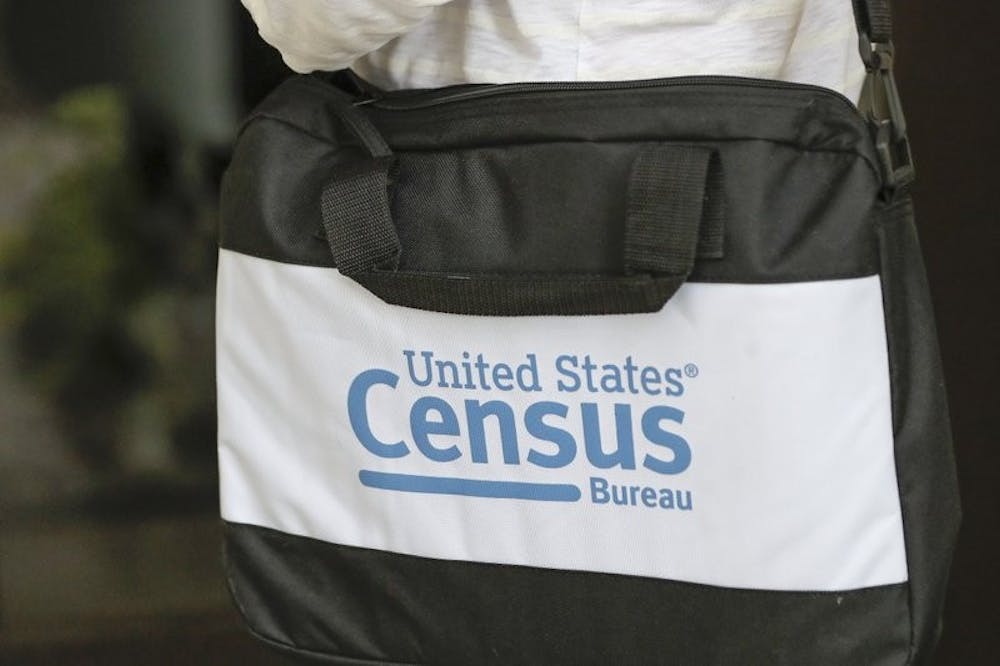MUNCIE, Ind.(NewsLink) — After the 2020 Census data showed a drop in Muncie’s population, the mayor released a statement saying the data was inaccurate. However, economists believe he is wrong.
According to Census population data, Muncie’s population dropped significantly from 2019 to 2020.
The city’s population has been declining steadily for over half a century, but in the last year, the population has dropped more than Census estimates predicted.
Because of the significant drop, some have speculated that 2020 Census data could be inaccurate. In a statement on Facebook, Mayor Dan Ridenour said he thought the Census overestimated the drop in population.
“I do not doubt that Muncie has been losing population for years,” he said, “However, I believe the data implies that the population counts for Muncie and Delaware County may be short by nearly 2,500 residents.”
In his statement, the mayor attributed the possibility of inaccurate Census data to Ball State students who relocated when the campus shut down at the start of the COVID-19 pandemic. Ball State classes and functions moved online during March, so many students moved home before the data was counted on April 1st.
Census data can influence the economic standing of a city. Governments use population data to allocate grants, and businesses use it to decide where they want to establish locations. Cities with populations that frequently shift, like college towns, can be vulnerable to population changes that impact the economy overall.
Students who live on campus are reported directly by Ball State to the Census Bureau. Those who live off-campus are supposed to fill out their own Census data, listing Muncie as their primary address. But many students don’t fill out the Census, and those who do often don’t list their Muncie residence as their home.
Zel is a student living off-campus at Ball State. He said he listed Michigan City as his primary address on the Census.
“The truth is, I’m mostly at home,” he said. “With the Census, do you really fill out where you’re living temporarily? Or where you’re living most of the time?”
College students often fill out the Census incorrectly, or not at all. Usually, this can be combated by sending Census forms by mail or going door-to-door. Ridenour said during a pandemic when many students left Muncie, these options weren’t effective.
“Many did not fill out a Census form when they were home to indicate they resided here, and door-to-door efforts by the Census Bureau workers were unable to combat that,” Ridenour said.
Ridenour estimated that while the population of Muncie did likely drop, it was overstated, but economists believe it is unlikely for Census data to significantly overestimate a city’s population decline.
“It’s just implausible that it’s 2,500 people. It’s far more likely to be 250,” said Dr. Michael Hicks, Director of the Center of Business and Economic Research at Ball State. “And 250 would be a high number.”
Dr. Hicks said the Census made changes to adapt to circumstances during the COVID-19 pandemic. The Census Bureau hired over 500,000 temporary employees to manage shifting populations, and they reached out to universities with large off-campus populations to receive data about enrollment that could influence population counts.
When asked about the mayor’s statement, Dr. Hicks said he felt they were each interpreting the data in different ways. He said the Census population data was likely accurate, pointing to large losses in younger age groups.
Research indicated that families with children have been relocating away from Muncie for several years. This has been reflected in dropping school enrollment. Dr. Hicks said a drop in population can be attributed to that trend, as well as a slight shift towards online college enrollment.
“We have to be honest with ourselves, the Census didn’t get it wrong. The Census did everything it could to get it right,” he said. “If you’re seeing the reinforcement of a 50-year trend it probably hasn’t reversed in the last 18 months.”
But Ridenour said he felt even a small amount of inaccuracy in population data would have a negative impact on the city of Muncie.
“Every single resident we lose on the Census count has the potential to cost our community money,” he said.
In his statement, the mayor said he plans to reach out to Congressional representatives about updating Census data or engaging with universities to ensure accurate population counts.





The Daily News welcomes thoughtful discussion on all of our stories, but please keep comments civil and on-topic. Read our full guidelines here.